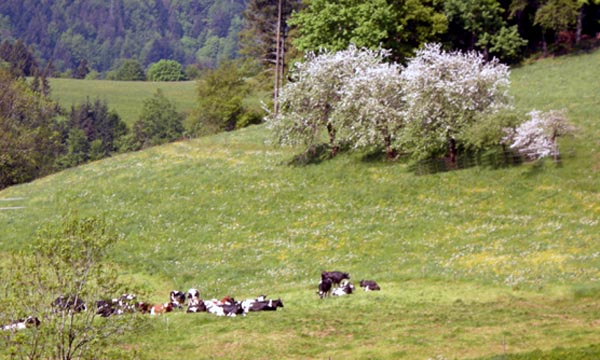18. Meme environments
-------------------------------------------------------
Previous - Next - Contents
I am exceedingly lazy these days and can
sit for ours in the sun, doing absolutely nothing. I find also more time to read
and have just completed John Hardy's The Woodlanders. John Hardy is one of
my favourite authors on two counts. To explain why I need to go back to Richard
Dawkins' memes concept and broaden (or modify
?) it for my own purposes.
Dawkins' memes pool encompasses all memes comprising the entire human
culture. One can visualise it perhaps as a layer of memes (ideas, concepts,
thoughts, definitions, etc.) surrounding the earth just like the atmosphere,
into which we as individuals tap into and use or add to as the case may be. This
memes layer however is not homogenous but varies greatly, forming as it were
different meme environments according to :
- the geographical location (e.g. region, country, continent)
- the individual's position within the spectrum of human society, or perhaps
more precisely
the individual's position within the range of human awareness
levels
I.
 Obviously the meme environment in Germany differs greatly from the one in
neighbouring France (or any other country for that matter), as it reflects a
unique culture specific to that country. To enter into this meme environment it
is essential to speak the language. I find that very strongly here in Germany.
Once within the language you start to speak, think and behave differently. I am
still the same person I was when speaking English, but a different aspect of me
is coming to the surface. I find this most enlightening and liberating and it
extends me as a human being. I feel therefore motivated to perhaps revive
my French from the dead and also continue my Spanish study in order to
appreciate these countries better in case I do visit there in the future.
Obviously the meme environment in Germany differs greatly from the one in
neighbouring France (or any other country for that matter), as it reflects a
unique culture specific to that country. To enter into this meme environment it
is essential to speak the language. I find that very strongly here in Germany.
Once within the language you start to speak, think and behave differently. I am
still the same person I was when speaking English, but a different aspect of me
is coming to the surface. I find this most enlightening and liberating and it
extends me as a human being. I feel therefore motivated to perhaps revive
my French from the dead and also continue my Spanish study in order to
appreciate these countries better in case I do visit there in the future.
II
The memes environment one taps into depends of course also very much on one's
inclination, taste, interest, social position, work environment and
intelligence, etc.
Personally I generally steer away from the common meme
environment of the broader spectrum of middle class society. There is of course
much of interest there, but as a dedicated memer I much prefer the outer edges of the meme
environment for my inspiration, and intellectual and spiritual enlightenment.
|
IIa
On the one end of the spectrum my interests lie with the latest thoughts and
discoveries of people like Einstein, Greene, Dawkins and others. Also in this area I
greatly admire and absorb material from people who have been instrumental in
break throughs of human awareness or culture in the past. Such as for example
Pythagoras, J.S.Bach, Erik Satie, Louis Armstrong and Charlie Parker in music;
Hyronimus Bosch, Rembrandt and Impressionists like Camille Pisarro, van Gogh,
Matisse, Modigliani (and others) in painting. In literature it is of course Hemingway who
with his immediate, aggressive contemporary style has blown a fresh wind of
renewal through the entire writers world.
Thomas Hardy too is one of
my favourite memers as he at the time was at the cutting edge (and pushing the
boundaries) of moral values, especially male-female relationships in the suffocating layered social sytem of the 19th Century.
IIb
At the opposite end of the "awareness spectrum" I have a great interest in (and
feel strong affinity to) the "ordinary man". The individual, often closely tied
to nature, who relies heavily on his own observations, thoughts and perspective
of the world and is little influenced by fleeting fashions and opinions of the
general public.
My affinity to (and high esteem for) these (extra-)ordinary
people has dominated my entire life from early childhood, perhaps enhanced then
by growing up amongst farmers in the Dutch countryside.
In literature I
therefore identify strongly with the writers Leon Tolstoy, John Steinbeck
and (once again) Thomas Hardy, who showed a clear preference for these
simple people in their novels. Tolstoy's Peter (in "War and Peace") and
John Steinbeck's Doc (in "Cannery Row") are imaginary (outsider)
characters which closely approximate my own person and attitude in real life.
These two novels also portray quite accurately the way in which I (as accepted
outsider) always am perceived and treated by these (extra-)ordinary people.
Next Page -
Top of Page
Copyright © 2010 Michael Furstner
|
|
